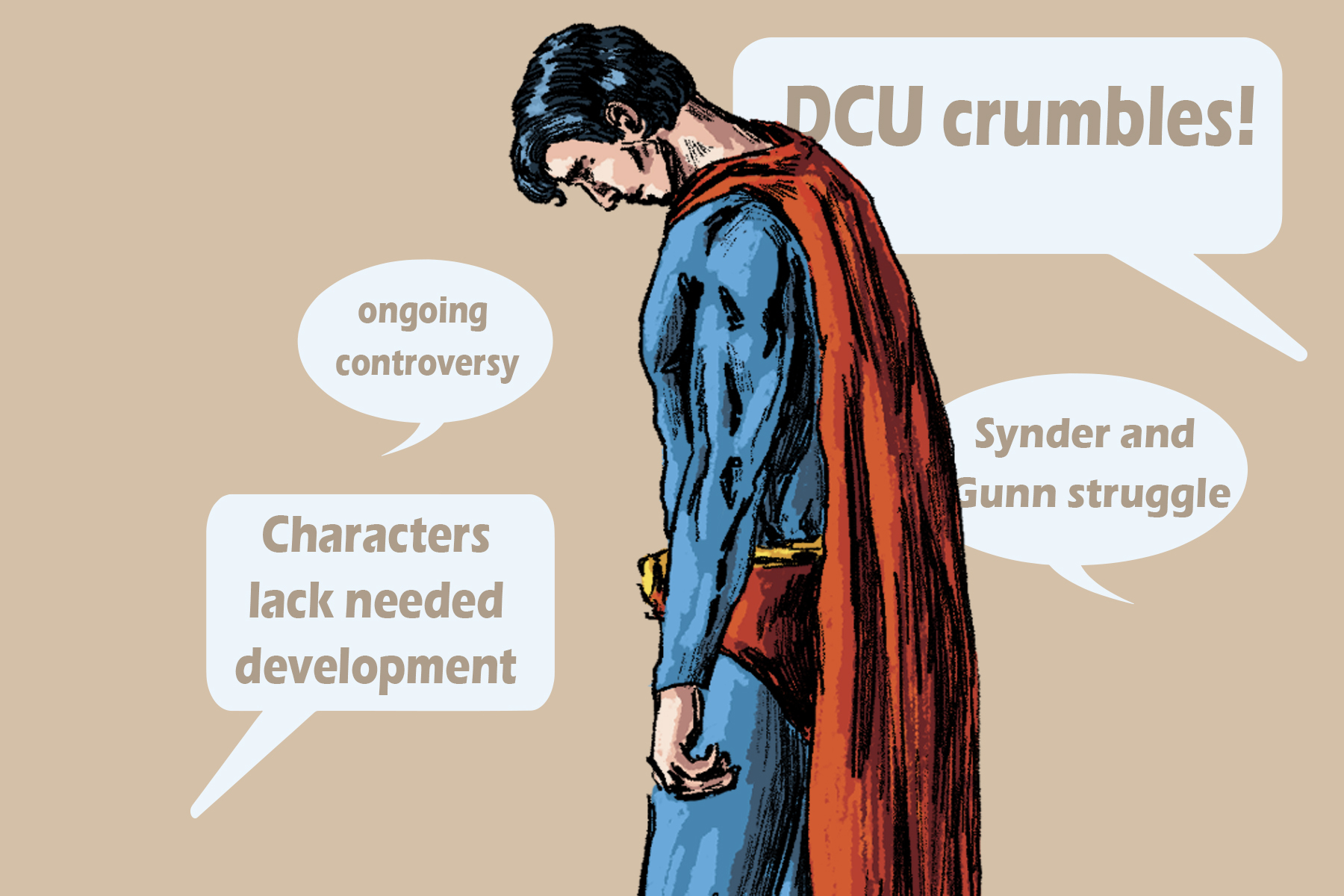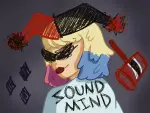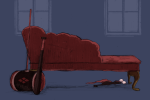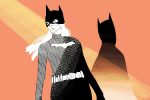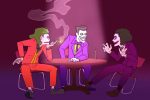Warner Bros. Pictures’ “The Flash” just made cinematic history — as the biggest superhero movie flop of all time. A project that test audiences once hailed as one of the best DC films since Christopher Nolan’s “Dark Knight” trilogy, “The Flash” only made $263.6 million at the box office, which will result in the studio losing $200 million. With a $190 million production price tag and a $150 million marketing budget, the studio would have been better off if it had never made the film.
“The Flash” accomplished what it set out to do: the film put an official end to the DC Extended Universe and ushered in James Gunn’s DCU. However, after a long and complicated journey to its theatrical release, the movie did not end the DCEU with a big bang. Rather, “The Flash” prompted the extended universe to collapse in on itself, creating an immense black hole. Thus, the movie is ultimately a fitting end to the DCEU.
Now, all DC fans can do is look back on the doomed cinematic universe and analyze everything that went wrong: terrible interpretations of beloved characters, behind-the-scenes controversies and an overall inability to connect with DC fans and movie-going audiences in general.
Terrible Interpretations of Beloved Characters
The DCEU has aroused the most contention for its depiction of iconic characters such as Superman and Batman. Superman’s character is a sticking point for many fans; the DCEU portrays him not as the ultimate beacon of hope, but rather as a brooding anti-hero with a permanent scowl. The DCEU’s characterization of Batman, however, takes the cake. His use of guns, willingness to kill criminals and murky backstory go against what makes Batman, well, Batman. Batman does not use guns. He also does not kill — at all. The DCEU’s Batman makes decisions that directly contradict his beliefs and morals.
It’s not difficult to demonstrate that Zack Snyder fundamentally misunderstood DC’s beloved, well-established characters. But Snyder’s flawed depictions of classic heroes ultimately stem from a deeper issue: the DC cinematic universe itself does not feel lived in. Directors and studios can interpret characters in many ways; for example, DC’s Injustice Universe characterizes Superman as a vengeful murderer and Batman as a killer. While both portrayals deviate from the original characters, they work because directors placed the reimagined heroes in an established universe that justifies their new character traits. The Injustice Universe presents and unravels a visible history that encompasses each world and character. There is overall cohesion, which is something the DCEU severely lacks.
Snyder’s Batman is well into his jaded vigilante career when the character appears for the first time in “Batman v Superman: Dawn of Justice,” but the movie does little to flesh out his history. The audience does not get to fully witness how Batman’s actions have changed Gotham. What happened to Batman’s rogues? Snyder’s Batman could have killed them in the many, many years that passed since he first became a superhero. But audiences will never know what happened because the film does not reveal Batman’s history.
The DCEU does not allow its world to breathe in its rush to introduce major characters. On a personal note, I am a huge DC fan. I believe that, if the DCEU had taken the time to introduce characters in their respective environments — to actually let audiences see the backstories and worlds that informed each character’s portrayal — then its unorthodox interpretations of iconic DC characters would not be so contentious.
Behind-the-Scenes Controversies
Plenty of movies have their fair share of behind-the-scenes drama. In fact, controversies are arguably the foundation of the entertainment industry. The DCEU, however, had too many of them. The backlash was inescapable; most of the controversies revolved around the actors who portrayed the iconic Justice League heroes.
The most disastrous controversies came courtesy of Ezra Miller, who played the scarlet speedster known as The Flash — and became an absolute PR nightmare. In 2020, a video captured Miller choking a woman at a bar in Iceland. In 2022, the police arrested and charged Miller with disorderly conduct for causing a scene twice at a karaoke bar in Hawaii; in April of the same year, authorities once again arrested the actor for throwing a chair that hit a woman in the head. Parents accused Miller of grooming pre-teen children over the summer. After that, the police charged Miller for breaking into a home in Vermont. In a related incident, the actor allegedly hindered the Vermont State Police’s attempt to serve an emergency care order to a woman who was staying with her three small children at Miller’s home. Local authorities then sentenced Miller to a one-year probation for the burglary.
Despite all of this, when asked whether he would recast Miller, “The Flash” director Andy Muschietti said, “I don’t think there’s anyone that can play that character as well as they did. The other depictions of the character are great, but this particular vision of the character, they just excelled in doing it.”
Warner Bros. demonstrated a severe lack of foresight in choosing to keep Miller attached to the project. Miller’s character has die-hard fans, but general audiences were not interested in seeing a film whose main star is responsible for a slew of controversies. It was not realistic for the studio to assume otherwise. In an era where “cancel culture” is incredibly pervasive, most people remain steadfast in their decisions to not support projects that they consider problematic.
Inability To Connect With Audiences
Warner Bros. didn’t necessarily establish the DCEU to tell a story. Instead, the studio established it to compete with Disney’s Marvel Cinematic Universe. Unlike the creative team behind the MCU, however, the DCEU’s architects placed less emphasis on creating a cohesive, compelling timeline than on creating a rival product. Essentially, the need to compete was the DCEU’s downfall.
The DCEU’s lack of thematic vision resulted in storylines that did not connect to the overall narrative. Ultimately, this fatal flaw caused the fanbase to split indefinitely between those who supported Zack Snyder and those who wanted the DCEU to end.
The DCEU movies simply felt uninspired. With a few gems “Wonder Woman,” “Shazam” and “Birds of Prey,” but the films didn’t feel at all connected to the world that DC had already established. It became very evident that the producers purposefully distanced the three films from the rest of the extended universe in order to preserve their independent identity.
The DCEU’s missteps represent valuable lessons that future projects can learn from. With the upcoming “Blue Beetle” movie set to become the first installation of James Gunn’s DCU, there is still a chance that this universe can forge a new path.


